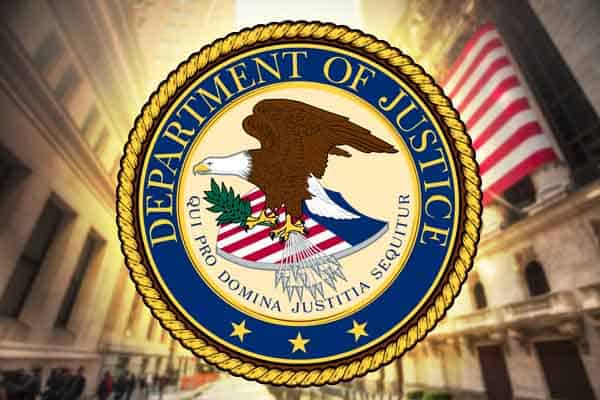For many states that have recently started allowing online and mobile sportsbooks, poker, and casino gambling to operate from inside their state lines the 2018 Department of Justice’s Formal Opinion on the Federal Wire Act came as a surprise that has sparked confusion among many states that have recently opened up to state-regulated online gambling.
1961 Federal Wire Act
The Federal Wire Act which is also known as the Interstate Wire Act was intended to prevent certain types of betting business from operating inside the United States. The Wire Act was originally an idea thought up by Robert F. Kennedy to stop organized crime from trafficking.
2011 Federal Wire Act Interpretation
The Department of Justice (DOJ) in 2011 released a formal opinion of the Federal mandate originally issued in 1961. The 2011 interpretation stated that “interstate transmissions of wire communications that do not relate to a ‘sporting event or contest’ fall outside the reach of the Wire Act.”
2018 Federal Wire Act Interpretation
On Jan. 14th, 2019, the DOJ issued another opinion on the Federal Wire Act that states all forms of online gambling are included in the interstate ban. The new opinion essentially reverses the 2011 opinion and leaves online gambling states in a limbo of what to do next.
The 2011 opinion launched states into territories not yet explored with state-regulated online wagering services. States such as Nevada, New Jersey, and Delaware have since launched state-regulated casino and poker sites that have increased their state revenue exponentially.
Some states are now vowing to fight the new interpretation including former New Jersey state Senator Raymond Lesniak who sponsored the effort to legalize online gambling in the state. Other states are expected to step up and fight the 2018 DOJ opinion as well, but for now, New Jersey is leading the charge.
Online Gambling States
- Nevada – State-regulated online poker has been legal in Nevada since 2013.
- Pennsylvania – The Keystone state became the fourth state to legalize online poker and casino gambling in 2017.
- New Jersey – The first state to legalize online casino games and the third state to legalize online poker after Nevada and Delaware.
- Delaware – The first state to legalize online poker. They also offer online casino games and lottery games. All online services are regulated by the Delaware Lottery.
State Gambling Compacts
Nevada, New Jersey, and Delaware have all enter an interstate poker compact that shares pools of players between the three states. The agreement compact initially started between Delaware and Nevada in 2015 and was the first gaming compact of its kind in the USA. The compact would establish the framework for future interstate expansion. New Jersey joined the interstate poker compact in 2017.
The 2018 DOJ Opinion is aiming to end these compacts and to make interstate online gambling illegal across the USA. The Department of Justice gave states 90 days to comply with the new opinion.
Sports Betting States
Ever since the 2018 repeal of the Professional and Amature Sports Protection Act (PASPA) states have been contemplating state-regulated online sportsbooks. Several states have already launched state-based online sportsbooks while many other states are in the process of passing legislation to allow domestic or online state based sportsbooks.
States and cities that have already launched sports betting include New Jersey, Nevada, Delaware, Mississippi, West Virginia, Pennsylvania, New Mexico, Washington D.C., and Rhode Island.
States that have passed and launched online sports betting include New Jersey, Nevada, Washington D.C., and West Virginia.
States that have passed legislation to allow sports betting but have not launched include: Arkansas
States that have a pending sports betting bill include Oregon, California, Minnesota, Iowa, Missouri, Kansas, Oklahoma, Louisiana, Illinois, Indiana, Michigan, Ohio, Kentucky, South Carolina, Maryland, New York, Massachusetts, and Connecticut.
States looking to pass online sports betting soon include Rhode Island, Pennsylvania, and Michigan.
What Are States Planning Next?
Since the news of the 2018 Federal Wire Act interpretation broke, states have been scrambling to find a way to salvage the state-regulated industries they had built for their community. In light of the recent interpretation, some states have paused their online expansion ideas as a way to wait and see what happens other states have flat out rejected the opinion and have continued operations. Here is what we know so far.
- New Jersey – former Senator Lesniak told reporters that “It looks like I will have to go to court again to straighten out the Justice Department’s overreaching on states’ rights, just as I did with sports betting.”
- Michigan – State Representative Brandt Iden told news sources that the new interpretation is “bunk” and “has no legal standing”.
- Pennsylvania – Gaming expansion is moving ahead cautiously as planned. State officials told regulators to abide by the new DOJ opinion.
- West Virginia – West Virginia has put their online gambling expansion bill on hold in light of the new DOJ Opinion.
State Rights Issue
The common argument we keep hearing is that this issue should be decided by the state since it was initially a state decision or voter referendum that allowed these industries to operate. Many states are now relying heavily on the extra income that online gambling has provided and using the funds to make their community and education systems a better place for their residents.

